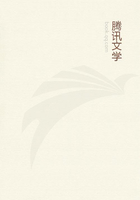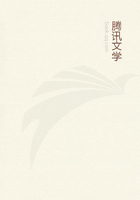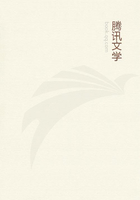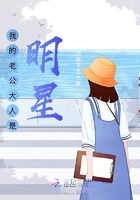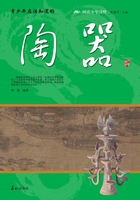[14] D'Haussonville, "L'église romaine et le premier Empire," II.,257, 266. (Report of Portalis to the Emperor, Feb. 13, 1806.)[15] Here Taine describes what today is often named as being the "state of the art. " (SR.)[16] Cuvier, "Rapport sur l'instruction publique dans les nouveaux départements de la basse Allemagne, fait en exécution du décret du 13novembre 1810," pp. 4-8. "The principle and aim of each university is to have courses of lectures on every branch of human knowledge if there are any pupils who desire this. . . No professor can hinder his colleague from treating the same subjects as himself; most of their increase depends on the remuneration of the pupils which excites the greatest emulation in their work." - The university, generally, is in some small town; the student has no society but that of his comrades and his professors; again, the university has jurisdiction over him and itself exercises its rights of oversight and police. "Living in their families, with no public amusements, with no distractions, the middle-class Germans, especially in North Germany, regard reading, study and meditation as their chief pleasures and main necessity; they study to learn rather than to prepare themselves for a lucrative profession.. . . .The theologian scrutinizes even to their roots the truth of morality and of natural theology. As to positive religion he wishes to know its history and will study in the original tongue sacred writings and all the languages relating to it that may throw light on it; he desires to possess the details of Church history and become acquainted with the usages of one century after another and the motives of the changes which took place. - The law student is not content with a knowledge of the code of his country ; in his studies everything must be related to the general principles of natural and political laws. He must know the history of rights at all epochs, and, consequently, he has need of the political history of nations; he must be familiar with the various European constitutions, and be able to read the diplomas and charters of all ages; the complex German legislation obliges him, and will for a long time, to know the canon laws of both religious, of feudal and public law, as well as of civil and criminal law; and if the means of verifying at its sources all that is taught to him are not afforded to him, he regards instruction as cut short and insufficient."[17] Louis Liard, " L'Enseignement supérieur en France, " pp.307-309[18] Two prisons at the time.(SR.)[19] Comte Chaptal, "Notes." - Chaptal, a bright scholar, studied in his philosophy class at Rodez under M. Laguerbe, a highly esteemed professor. "Everything was confined to unintelligible discussions on metaphysics and to the puerile subtleties of logic." This lasted two years. Public discussions by the pupils were held three or four hours long; the bishop, the noblesse, the full chapter attended at these scholastic game-cock fights. Chaptal acquired a few correct notions of geometry, algebra and the planetary system, but outside of that, he says, "I got nothing out of it but a great facility in speaking Latin and a passion for caviling."[20] Useful qualities for an administrator, anytime anywhere. (SR.)[21] The Grande Ecoles today in 1998 produce first of all a special type of engineer, a general engineer, specialist in nothing but highly trained in mathematics, physics and chemistry. This education is found, either in Ecole Centrale, mainly providing private enterprise with engineers, and Polytechnique, mainly providing the State with engineers. Specialist engineers, in construction, chemistry, electronics, electricity etc. are produced by a few dozens prestigious engineering or commercial schools which admit the students who have completed 2 or 3 years of preparatory school and successfully competed for the more popular schools. The special schools Taine talks about are the precursors of a great many of the schools available in France today. The principle of admission by concurs is still in use and produce engineers who are able and willing to work hard, engineers who are competent but often a bit proud and overly sure of themselves.
(SR.)
[22] Louis Liard, "Universités et Facultés," pp. 1-12.
[23] Pelet de la Lozère, 176 (Session of the Council of State, May 21, 1806).
[24] Liard, "L'Enseignement supérieur en France," 71, 73. "In the law schools, say the memorials of 1789, there is not the fiftieth part of the pupils who attend the professors' lectures." - Fourcroy, "Exposé des motifs de la loi concernant les Ecoles de droit," March 13, 1804. "In the old law faculties the studies were of no account, inexact and rare, the lectures being neglected or not attended. Notes were bought instead of being taken. Candidates were received so easily that the examinations no longer deserved their name. Bachelor's degrees and others were titles bought without study or trouble." - Cf the "Mémoires " of Brissot and the "Souvenirs of d'Audifret-Pasquier,"both of them law students before 1789. - M. Léo de Savigny, in his recent work, "Die franz?sischen Rechts facult?ten" (p.74 et seq.)refers to other authorities not less decisive.
[25] Reference is made to the synopsis of the Justitian code of civil and other Roman laws. (SR.)[26] Treaty of law written Roman jurists under Justitian in 533. (SR.)[27] Decree of March 19, 1807, articles 42, 45.
[28] The French Supreme Court. (SR.)
[29] Courcelle-Seneuil, "Préparation à l'étude du droit " (1887), pp.
5, 6 (on the teaching of law by the Faculty of Paris).
[30] Léo de Savigny, ibid., p. 161.
[31] Bréa1, "Quelques mots sur l'instruction publique" (1892), pp.
327, 341. - Liard, "Universités et Facultés," p.13 et seq.
[32] Act of Jan.23, 1803, for the organization of the Institute.

